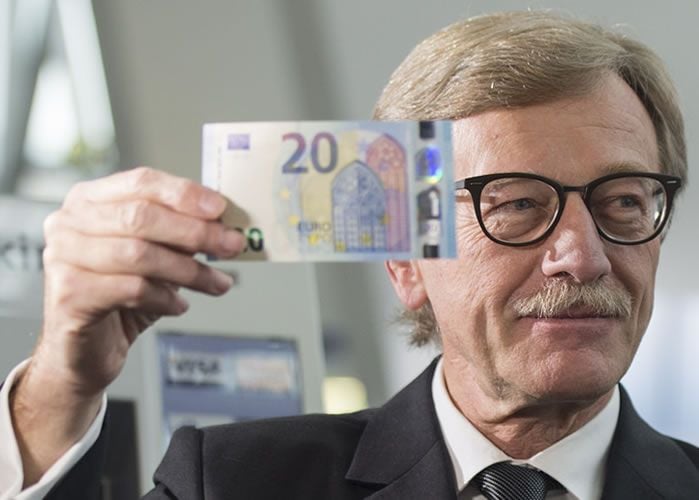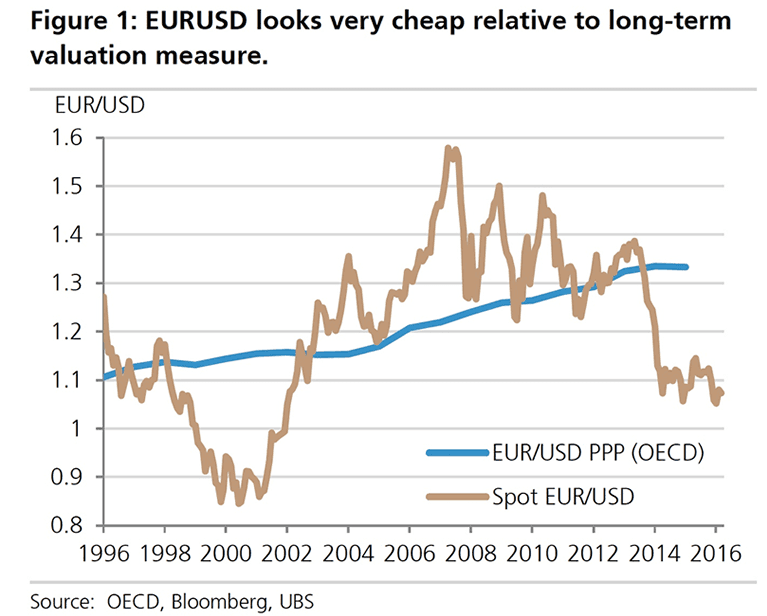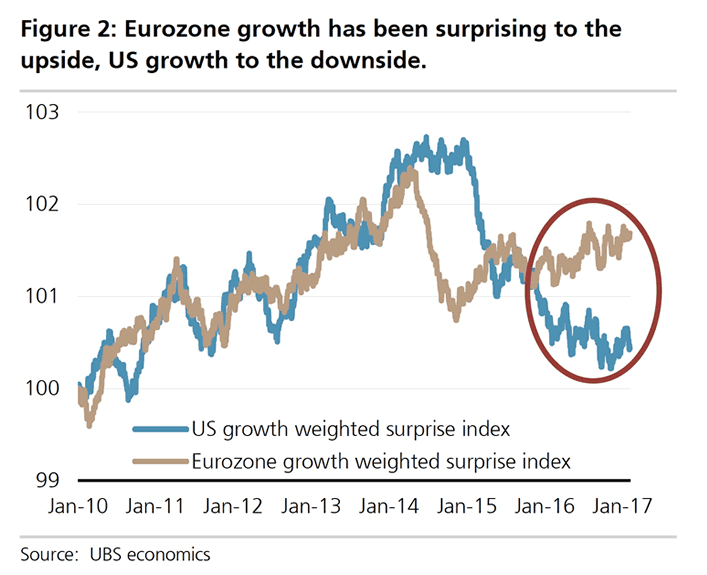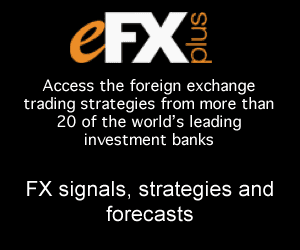EUR/USD Forecast to Move Notably Higher Against Dollar from Here

The Euro is forecast to move higher against the US Dollar over coming months with a prominent analyst suggesting the pair is substantially undervalued on a long-term basis.
This is the view of a prominent institutional analyst who argues that the risk-reward skew on the exchange rate now sits favourably to the upside.
The call comes after a tough twelve months for Euro bulls as the EUR/USD has fallen by nearly 5% in this period.
However, in 2017 the Euro has recorded a 1.21% gain with markets stepping back from the Dollar as they wait for more guidance on policy from newly installed President Donald Trump.
Traders will be asking whether the shared currency has successfully based against its larger counterpart.
More Gains to Come
At the time of writing the Euro to Dollar exchange rate is quoted at 1.0645.
Yet, there are concerns that the Euro will be unable to advance much further with political risks in the Eurozone starting to build:
1) French elections and prospects of a Marine Le Pen win
2) Dutch elections and the prospects of a Gert Wilders win
3) The Greek debt crisis is coming to the fore again, highlighting the self-harming absurdity of the country staying in the Eurozone
Yet, the Euro’s climb against the Dollar is not yet over argues Themos Fiotakis, a foreign exchange strategist at UBS. In fact, a rather large recovery could lie ahead.
“The rise in EUR/USD is proceeding as we expect – slowly and with noise – supported by valuations and growth momentum. US policy expectations are still high and disappointments can take air out of the dollar. Eurozone politics pose the key risk,” says Fiotakis in a client briefing seen by Pound Sterling Live.
The big issue for researchers at UBS is just how cheap the Euro is.
“From a long-term perspective EUR/USD looks cheap. PPP-based models place fair value north of 1.30 and current account-based models point the same way,” says Fiotakis.
UBS argue the undervaluation is in part due to the gap between the US recovery vs a wide Eurozone output gap.
Incidentally, this confirms suspicions that the recent fracas sparked by Trump’s trade boss Peter Navarro has truth - the Euro is too weak for the might Germany.
We have since reported that Pimco Economist Joachim Fels believes the European Central Bank is part of a cabal of international central banks actively seeking to artificially lower their currencies in a 'cold currency war'.
Fels argues that the use of cautious language and guidance by the ECB is playing a part in ensuring the currency is lower than where it should be and this is dangerous as it could provoke the US into an all-out trade war.
Why the Euro will Rise
For UBS the economic trajectory is currently moving in the Euro’s favour with recent US data releases underperforming expectation.
The Eurozone meanwhile continues to see data surprise to the upside with PMIs breaking out of their 2011-16 range (with little sign of core inflation pressures).
Furthermore, UBS are sceptical that Donald Trump’s policy can exceed the expectations already priced into the Dollar.
“It would take a strong policy package (which boosts US trend growth by about 50bps pa.) to bring the EUR/USD 3% lower in the long-run,” says Fiotakis.
But what about the prospect of a border adjustment tax, something that has many analysts arguing for further notable Dollar strength?
"The Dollar rally also reflects market worries of "border adjustment" tax policies. However, such measures
are unlikely to have a large dampening impact on the EUR/$ per se in our analys," says Fiotakis.
Risk/Reward is Right
The analyst concedes that there is a risk to the Euro in the form of key elections in 2016 and markets have already started pricing this into the currency, arguably halting its recent ascent.
But, UBS argue the risk reward in the EUR/USD is asymmetric:
“The risk premium in EUR/$ has already risen substantially; our analysis shows that since the US elections the market has for the first time in a while reflected swings in European political risk into a lower exchange rate.
“If the most likely outcomes materialise and tail events are averted, EUR/$ has scope for a significant rally.”







